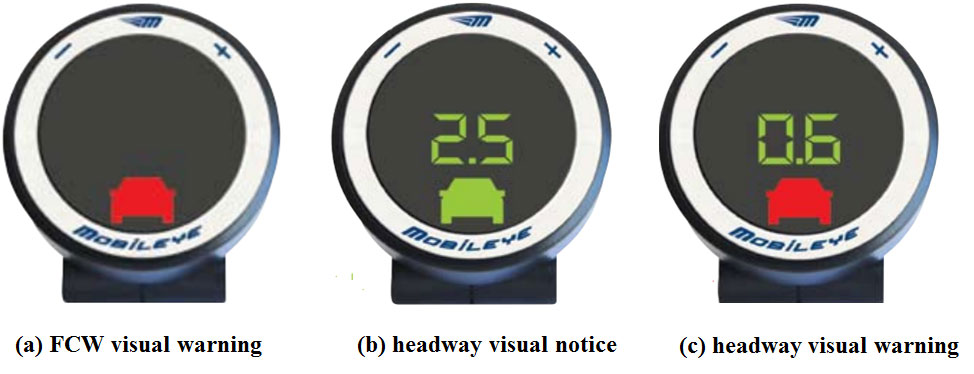 Visual display of the forward collision warning system.
Visual display of the forward collision warning system.
Impact of a Forward Collision Warning System on Headway and Reaction Time during Car Following
Abstract
Forward Collision Warning (FCW) systems function by alerting inattentive drivers to upcoming forward hazards, and have been shown to help drivers respond more quickly under emergency situations. As FCW directly affects how vehicles interact longitudinally with one another, it may also influence drivers’ car-following behaviors. To investigate this effect, driving data were collected by the on-going Naturalistic Driving Study conducted in Shanghai. Five data collecting vehicles are equipped with Mobileye® systems, which include an FCW function. Participants drive the instrumented vehicles for two months, with the Mobileye® system not activated for the first month, but activated for the second month. From 60,689 km of naturalistic driving data, 1,489 car-following events were identified. Headway and reaction time are major parameters of car-following behavior. Headway relates to the time available for a driver to react, and is a safety measure of car-following behavior. Reaction time refers to the delay between velocity changes of a lead and a following vehicle, and is a governing factor in determining traffic stability. The results of this study show that (1) drivers tended to maintain a longer headway when FCW activated; and (2) the FCW resulted in a 0.13s decrease of reaction time in daytime driving, and a 0.09s decrease when a following vehicle had higher speed than the lead vehicle. Moreover, this study further confirms that the reaction time is affected by relative distance, lead vehicle acceleration, and traffic density. These results would be valuable for driver reaction time modeling and simulation of traffic with FCW.